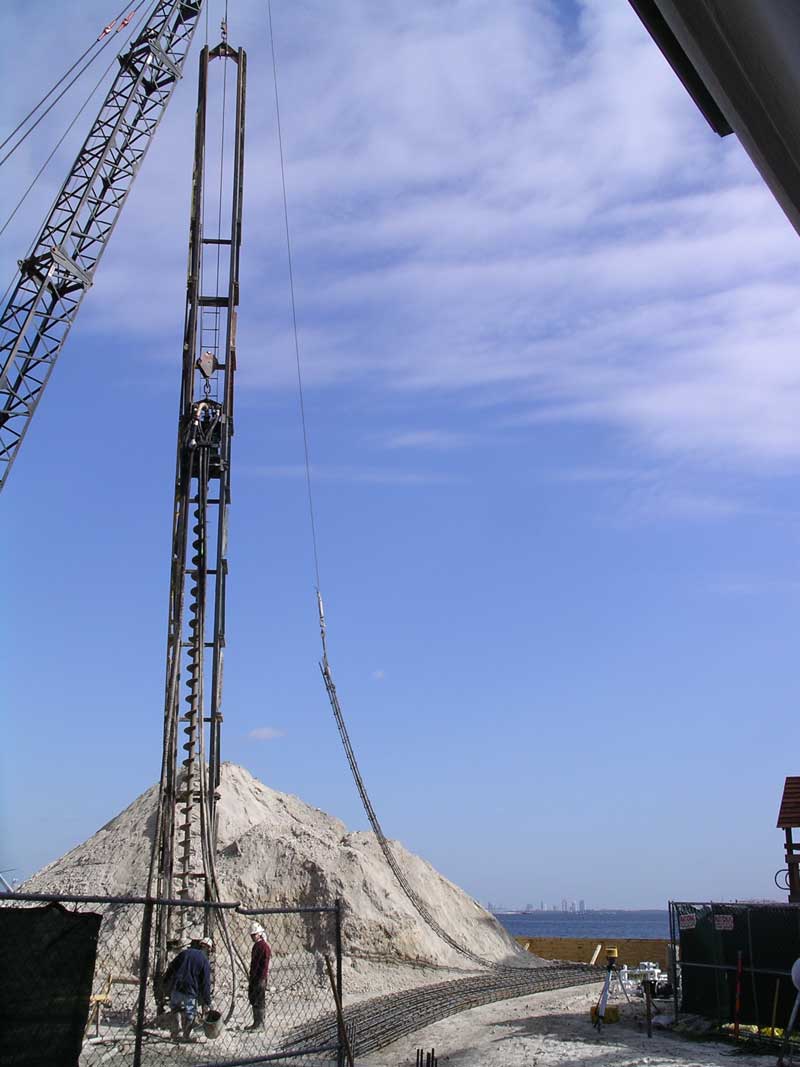General Construction FAQs
What is a general contractor and what do they do?
A general contractor is a person responsible for taking the architect’s set of plans and performing all the work necessary to implement all the work. Here at Crystal Construction Consulting, our licensed general contractor has been serving clients for 48 years doing every aspect of residential and light commercial construction with our own crews or with vetted and trusted required subcontractors.
What do inspectors do?
Inspectors come out to the job and inspect in-progress work as per local building codes and as per the building plans that have already been approved by the building department. Permits include electrical, plumbing, mechanical, framing, foundations, roofing, and other sub-trades – each of which needs an inspection. The inspector will either approve or deny the work after inspection. If it is denied, they will explain that it isn’t as per plan as per building code, and the work will have to be changed to meet the plan or building code. Then, you can call for reinspection, and the inspector will come out again.
Our expert was an inspector in a city in California so we have in-depth knowledge of the inspection process.
What is a subcontractor and who hires them?
A subcontractor is one of the contractors who work under the general contractor in a trade like electrical, plumbing, insulation, concrete work, and other contractor trades that are involved in building a project. The general contractor or property owner hires them. We can do this for you as part of our construction and consulting services.
Can I hire my own contractors and subcontractors or do some of the work on my own?
Yes, you can do both. You can use our consulting services as a consultant on the work you’re doing all the work yourself or with subcontractors. However, you cannot use our general contractor license due to liability issues.
Our substantial amount of experience ensures that every aspect of your job is done with trade specifications and high quality. Our motto in working with our clients is to give you the best possible construction experience and provide you with enough information to make wise decisions on how to proceed with your project and how to spend your time and money. We understand the enormity of the stress and anxiety caused by construction projects and will work with you to minimize that through knowledgeable work and guidance so that you feel taken care of.
My homeowner’s insurance wants to pay less for my fire damages than I need. Is there anything I can do?
You need someone to advocate for you. An expert or consultant can figure actual costs versus what the company is offering and negotiate a fair settlement for you. They may also be better able to see things that need to be done than the insurance company adjusters do.
I’ve been told my house has dry rot. How do you get rid of it?
Dry rot, which is common in Northern California and other rainy places, is due to the absorption of water into wood siding, trim, or structure. The wood softens and its cellulose breaks down. The affected area loses its structural integrity. You can recognize dry rot in your house if you see holes or wavy or buckling wood in trim work, beams, porches, roof edges, and any other area made of wood.
You get rid of dry rot by replacing the damaged area with new materials. People often ask me to estimate how much this would cost, but it’s difficult because you can’t see the hidden dry rot. There will on average be about 1.5 to 4 times more dry rot than you can see on the surface. Contractors need to inform their clients about this upfront in order to avoid problems. Be sure to talk at length with the contractors to be sure that you will relate well.
What are easy things I can do to make my house more energy efficient?
Every time a light bulb goes out, replace it with a compact fluorescent light bulb. Open shades for natural light. Keep electrical devices off when not in use.
Is a gas-powered heat appliance, such as a stove or water heater, better or worse for the environment than a similar electrical appliance?
In most cases, the electricity for your stove comes from burning fossil fuels to boil water, spin turbines, and produce DC electricity, which is then transformed to AC electricity and transported to your home, where it is pumped through the elements in your stove to produce heat through electrical resistance. As you can imagine, it is far more efficient to simply burn the fossil fuel in your home to cook your food or heat your water.
Can you help me resolve an abatement order from the county?
Yes, we can contact the county abatement inspector and discuss what will be necessary to clear the abatement order from your property.
What are the steps involved in removing the abatement order?
After contacting the county abatement inspector, you will need to obtain the necessary permits to do the work in the abatement order. After that work is finished and finaled by the building department, the abatement order can be removed.
What do I do if I get a Stop Work Order from the building department?
You will have to contact the building department and bring in plans for the work that you are doing, get those plans approved, and then call for inspections for the work that has already been done.
What do I do if my job gets red-tagged by the building inspector?
To eliminate the red tag from your property, you must make the necessary repairs or adjustments within the time frame specified by the city. If the deadline passes without any repairs or attempts to repair, you’ll incur a penalty for failing to comply with the codes as required.
How many inspections will I have on my addition or remodeling job?
Depending on the size and complexity of the job, you will need about 4 to 20 or more inspections.
Is it very hard to be the general contractor on my own new house, addition, or remodeling job?
If you have a fair amount of construction knowledge and are good at scheduling the different aspects of the construction process and have the time to do so, then you would be able to be the GC on your own project. If you don’t have these requirements, then being a GC on your own project would be very difficult.
What do I do first when I am thinking about a major construction project on my home?
Hire a consultant if you know of one. Otherwise, hire an architect to design the project, get 3 bids from general contractors, check their references, and pick one to do the job.
What is the best way to pick an architect or general contractor?
The best way to pick both an architect and general contractor is to ask friends and/or relatives who have had a project done on their home or business. If you don’t have any, you can use online resources and reviews on Google or Linkedin. You can also drive around your area and talk to the owners of projects there.
How important are lien releases from the GC, subcontractors, and suppliers?
Lien releases are extremely important because even though you have paid the general contractor, they may not have paid their subcontractors and/or suppliers. If either of these has sent you a preliminary lien notice, then the owner, not the general contractor, is legally responsible for paying the amount due.
What is the best way to pick the type of materials that are used in your construction project?
The quality of the construction on your projects is directly related to the types of materials that are used. For most aspects of the construction, there are A, B, and C grades for the materials that are to be used. It is always best to use A-grade materials, but due to the cost difference, many times, B and C grades will be used.
How important is the selection of all the finishes in your construction project?
The finishes of a project are directly related to the cost and quality of the finished products. The items that are considered finishes are cabinets, countertops, appliances, electrical and plumbing fixtures, bath hardware, flooring (carpet, wood, marble, granite, tile work, etc), painting, wallpaper, finish hardware, draperies, and high-end millwork. Depending on what finishes are used, the cost of a project can easily go up from 25 to 100%.
When do I need permits for the work I want to do for my home or business?
Permits are needed when the work you want to do is governed by the county or city building, planning, zoning, and public work codes.
Where do I obtain building permits and how long is the review process?
Building permits are obtained at the County or City Building Departments. The review process can be as fast as a few hours for over-the-counter permits or months to years for large and complicated projects. Because of COVID-19, the typical permit takes 2 to 8 months to process.
Does my project need more than one permit at a time?
Very likely! Most projects will involve two or more different types of building permits. For example, a smaller remodel you may need building and/or electrical permits.
What are variances and do I need one?
A variance is when you want to include something in your plans that is normally not allowed by the building or zoning codes. Basically, because of the project’s particular needs, you/the owner of the property is asking for special dispensation from the normal codes. If what is being asked in the variance is ‘reasonable’ they are frequently approved.
For example, if a you want to put a structure right on the building line where the set back is normally 5 to 20 feet, it is never approved because it is a very important part of the fire code – this code ensures that a fire can’t spread from one building to the next if you have two similar structures back to back.
Another example: if a church wants to put on a cross or spear on a steeple to highlight the church, and the cross or spear meets all other building code requirements and is not near any property lines, then it may be approved.
Are the permit codes similar across counties and cities?
Because all of the codes in each state are based on the standard uniform codes, and many states will have adapted those codes, you will find that most jurisdictions throughout the US will have very similar codes.
How are permit codes different across counties and cities?
The many differences that you will find in local codes by jurisdiction is where a jurisdiction has to make sure that the codes represent the proper interpretation of local codes for hurricane, earthquake, snow loads, temperature problems, and a large variation of problems according to the geological location of the jurisdiction.
Note: A jurisdiction means the city or county of a state.
What if you get a citation or red tagged?
Normally a red tag or a citation is issued when work is being done without permits. Once that has happened, then the property owner must bring plans to the local building department that represent the work that is being constructed. It is then necessary to get the plans approved and permits to be issued in order to continue the work that was red tagged. One of the major things that should be done when a property owner is doing the work without permits is to make sure that everything they’re doing is up to today’s code so that if they do get red tagged, then they can get approvals for the work being done. If it is not up to today’s code, then that work will have to be removed.
What happens if you don’t get permits?
If an inspector finds out and red-tags your job, you will have to then obtain the proper building permits and then have your work inspected that it has been done according to the proper codes. Normally the cost of the permits will be 2 to 5 times the normal permit costs if you are red tagged.
Do you sometimes have to redo some unpermitted work?
You have to redo it or remove it if it is something that would never be approved by the building department
How do all of the new earthquake codes affect the cost of construction?
Because of the extensive damage done to structures from past earthquakes, the newest building codes, as revised by the structural engineers that are part of the Building code process, are very strict and have added a lot of earthquake hardware and lateral diaphragm upgrades. These upgrades have proven to be very costly to most construction projects.
What are the stages of building construction?
The stages of construction can be broken down in many ways. We like to keep it simple here at Crystal Construction Consulting with these four stages:
- Planning and Design: This first step is gathering the designers to start the planning process of your project. We research and hire interior designers and architects to do the design of your project according to your needs. We can help you find professionals.
- Pre-Construction: This second stage is where the plans drawn up by the interior designers and architects are submitted to the local building departments and we settle on the specifications for all products to be used in the construction process. We also begin to get bids from all necessary subcontractors. Then we obtain the permits for the work to be done. And, of course, then we start preparing construction crews for starting your project.
- Construction: This stage is the implementation stage. We implement all the work as per plan while going through the inspection process at the different stages of completion. We can help you map out a construction timeline according to your preferences, budget, and time needs.
- Post-Construction: Here is where we make sure we have completed all of the final punch ists and warranty items involved in the construction process for your project. We obtain the final release of liens and final inspection which shows the permits as being finaled.
What are the steps to manage a construction project?
Normally, a general contractor has a project manager or superintendent who oversees the construction process. We handle this as well as change orders, time scheduling, invoices and billings, releases of liens, and whatever else is needed to conclude your project.
Who is responsible if someone is hurt on the job?
Licensed contractors are required by most states to carry Workers’ Compensation Insurance to cover all workplace incidents. If the property owner is doing the work themselves, then they should have Workers’ Compensation Insurance as part of their homeowner’s insurance to cover anyone working on their property.
Who is responsible for getting the necessary permits?
For homes, either the homeowner or the general contractor is responsible for obtaining the necessary permits. For commercial work, it has to be the general contractor. As a licensed general contractor and consultant, we can help you obtain the permits.




Services
Our Services
We provide two distinct sets of services at Crystal Construction Consulting as our name suggests: Construction and Construction Consulting.
Although they may sound similar, they are unique services that suit clients in different ways.
Often times however, we combine both services within the same project if needed by the client.
There is a lot of education that happens within the construction process, and it is an integral part of how we help our clients – consulting even as we build.
Construction Consulting Services
For clients who are working on a project in any capacity from owners to attorneys to real estate brokers, we provide in-depth, knowledgeable, consulting to ensure the best possible results for your specific situation. We help people navigate through the complexities of construction. Our clients tell us about the gratitude and relief that they feel after receiving the guidance they need. They also like that we can usually save them a lot of money on their project, sometimes as much as 50%.
General Contractor Services
Martin, our licensed contractor of 48 years, and his crew are waiting to help you begin or complete your project with your best interests at heart.
They listen closely to what you want and also make suggestions for improvements for you to consider. When building a project, Martin is also continually sharing his knowledge to help his clients through the process to achieve the highest quality results, and his experience allows him to be remarkably efficeint.
Questions
Have a question?
Check out our FAQ or send us a message.
